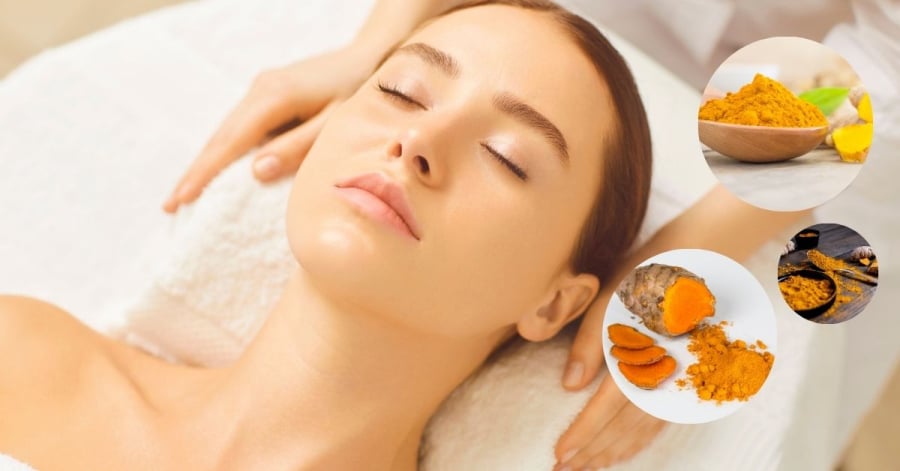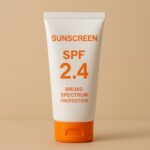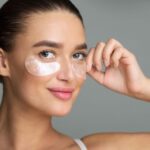Sunscreen’s Best Friend: Curcumin to the Rescue
Our skin faces constant assault from the sun’s UV rays, pollution, and other external irritants, leading to the formation of free radicals. Curcumin, the primary bioactive compound in turmeric, exhibits anti-inflammatory and antioxidant properties, shielding your skin from UV-induced damage by neutralizing free radicals and reducing inflammation.
Research indicates that regular topical application of curcumin can help combat sun-induced skin aging. Including antioxidant-rich foods like turmeric in your diet may help prevent the accumulation of free radicals, safeguarding cells from damage that could lead to skin disorders and cancer.

Curcumin’s Protective Effect Against Sun Damage
Lighten Dark Circles
Turmeric inhibits melanin production, addressing issues like dark spots, hyperpigmentation, and uneven skin tone. With consistent use, products containing turmeric can help reduce hyperpigmentation, promote a more even skin tone, and naturally fade dark circles, giving your skin a youthful radiance.
Fight Premature Aging
Collagen is essential for maintaining skin elasticity and firmness. Another benefit of turmeric for the skin is its ability to boost collagen production, stimulating the formation of new, healthy tissue. This helps maintain skin structure and reduces the appearance of fine lines and wrinkles.
Turmeric also inhibits elastase, an enzyme that breaks down the skin’s elastin. Slower elastin production can lead to an increase in wrinkles, crow’s feet, and sagging skin.

Turmeric’s Role in Inhibiting Elastase
Calm Psoriasis and Other Skin Inflammations
Psoriasis is an inflammatory skin condition affecting around 2-3% of the global population, characterized by red, painful, scaly patches on various body parts. Turmeric, rich in compounds that reduce swelling and inflammation, has been found to alleviate flaking, itching, swelling, and redness associated with allergic dermatitis, psoriasis, especially when applied topically.
Combat Acne
The antibacterial properties of turmeric may help prevent the growth of acne-causing bacteria and staphylococcal infections. Additionally, its anti-inflammatory nature expedites the healing process by soothing inflamed areas.
Accelerate Wound Healing
Managing inflammation is crucial for wound healing. Research reveals that this compound speeds up wound closure and reduces scarring. Turmeric use may also boost the body’s production of hyaluronic acid, a compound known to aid in wound healing.





































